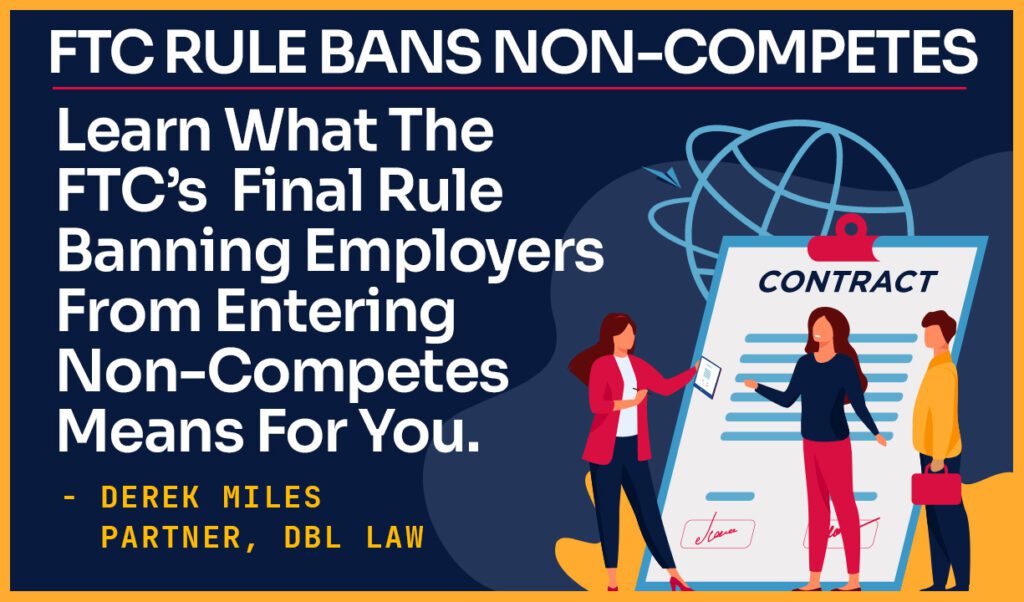
Updated
On April 23, 2024, the U.S. Federal Trade Commission (FTC) held a hearing in which its members voted to adopt a final rule which will effectively prohibit all employers from enforcing non-compete clauses in employment contracts with a few limited exceptions. This broad-reaching rule will impact millions of American workers in almost every industry.
Under the FTC’s new rule, all existing non-compete agreements, except those relating to “senior executives,” will become unenforceable. Employers are required to inform both current and former employees that their non-compete clauses are no longer in effect. In the context of this rule, a “non-compete clause” refers to a contractual provision that prohibits, penalizes, or functions to prevent an individual from joining a competing employer or from establishing a competing business within a designated geographic area and/or time frame following the end of an individual’s employment for any reason. The rule also extends to agreements that obligate employees to reimburse the employer for training expenses if their employment concludes within a specified period.
The carved out “senior executive” exception to the rule is defined by the FTC as those individuals earning more than $151,164 annually and who are in a “policy-making position.” For those “senior executive” employees, the FTC determined that existing non-compete agreements can remain in full force.
Employers often justify the use of these clauses by citing the necessity to safeguard trade secrets and confidential information from competitors seeking to poach talent. But the FTC concluded that non-compete agreements stifle wage growth and impede competition by hindering workers from pursuing better employment opportunities and limiting employers’ ability to recruit top talent. The FTC stated that non-compete clauses to be an unfair method of competition, violating Section 5 of the Federal Trade Commission Act. It is estimated that approximately 20 percent of U.S. workers are bound by such agreements, with higher rates observed in sectors such as technology and healthcare. After it announced this proposed rule in January 2023, the FTC received over 26,000 public comments on it.
While the statute establishing the FTC, the Federal Trade Commission Act, defines the agency’s jurisdiction as covering those entities which are organized “for profit,” the final rule also elaborates that non-profit organizations are “not categorically beyond the Commission’s jurisdiction.” On this point, the FTC states that “[m]any of the comments [received] about nonprofits erroneously assume that the FTC’s jurisdiction does not capture any entity claiming tax-exempt status as a nonprofit.” The FTC states in its rule that despite the assumption its jurisdiction only extends to for-profit entities, non-profits may also “be bound by the final rule” which would nullify and prohibit most non-compete clauses
While the rule does not explicitly encompass other forms of employment restrictions like nondisclosure agreements, it may encompass broader restrictive covenants if those contractual provisions also effectively function as non-compete clauses, the FTC said. Existing state law relating to non-competes may also be affected as it will be preempted by the new rule unless the state already provides greater protection for workers than the FTC rule.
The new rule is scheduled to take effect 120 days after its publication in the Federal Register, though the its enforcement will most likely face delays due to anticipated legal challenges.
If you have any questions about non-compete agreements in your workplace, other existing restrictive covenants, or alternate methods of protecting your business interests, contact Mark Guilfoyle, Nick Birkenhauer, or Derek Miles to start a conversation about how we can be of help.